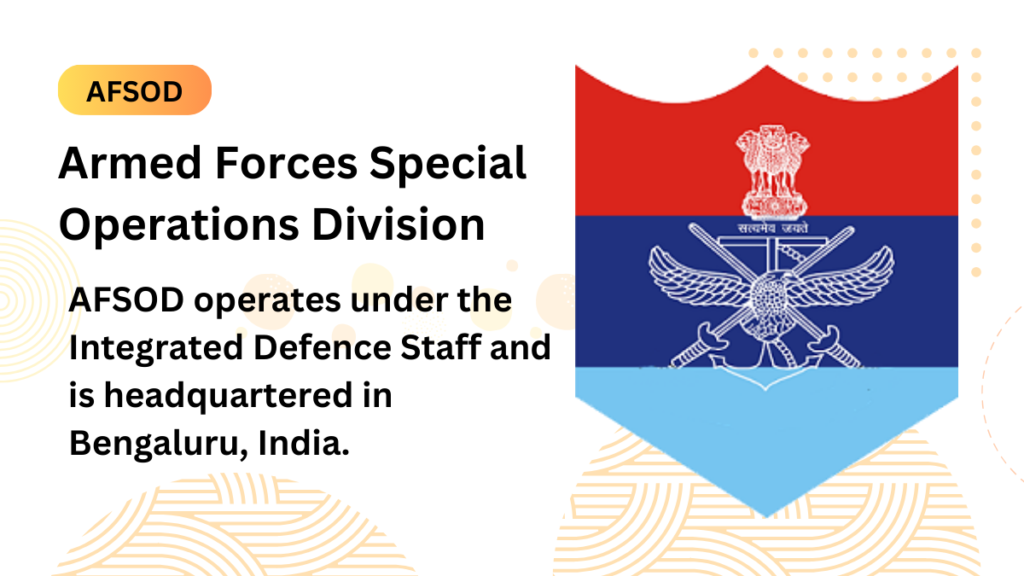The Armed Forces Special Operations Division (AFSOD) represents a pivotal evolution in the operational capabilities of the Indian Armed Forces. As an integrated tri-services division, AFSOD is tasked with carrying out special operations, drawing its elite personnel from the Indian Army, Navy, and Air Force.
Formation and Leadership
AFSOD was established on 28 September 2018, with full operational capability achieved by November 2019. This division emerged from the recommendations of the Naresh Chandra Task Force, which was convened in July 2011 by then-National Security Advisor Shivshankar Menon. The task force aimed to review the recommendations of the Kargil Review Committee and suggest new reforms related to national security. Among its key recommendations was the creation of a unified special operations command.
The division began functioning under the aegis of the Ministry of Defence, with Major General A. K. Dhingra, a decorated war veteran from the Para SF, appointed as its first head in May 2019. The current commander is Major General M.S. Bains, who holds the rank of General Officer Commanding (GOC).
Structure and Components
AFSOD operates under the Integrated Defence Staff and is headquartered in Bengaluru, India. The division is expected to eventually expand into a full-sized tri-service command, reflecting its strategic importance.
The division comprises approximately 3,000 elite soldiers, although the exact number remains classified. Its main components include:
- Para (Special Forces): The Indian Army’s special warfare branch, forming a significant portion of the AFSOD.
- MARCOS: The Indian Navy’s special warfare unit, specialized in maritime operations but capable of operating in various environments.
- Garud Commando Force: The Indian Air Force’s special warfare branch, tasked with supporting air operations, protecting key military assets, and conducting search and rescue missions during wartime.
AFSOD is also equipped with operational control over transport aircraft, specialized weapon systems, and advanced surveillance equipment, enhancing its operational flexibility and reach.
Mission and Role
The primary role of AFSOD is to conduct high-stakes special operations both within and outside India. These missions include targeting high-value installations and degrading the war-fighting capabilities of adversarial nations. By pooling the unique capabilities of the special forces units from the Army, Navy, and Air Force, AFSOD aims to execute highly coordinated and effective operations.
The establishment of AFSOD is not just a strategic move but also a cost-effective one. By enabling special warfare units to utilize common equipment and operate under a unified command, operational costs are reduced while efficiency and effectiveness are significantly enhanced.
Future Prospects
Approved by Prime Minister Narendra Modi during the Combined Commanders’ Conference at Jodhpur Air Force Station, the creation of AFSOD signifies India’s commitment to strengthening its national security architecture. As it evolves, AFSOD is expected to play a crucial role in addressing contemporary security challenges, leveraging the combined strengths of the Indian Armed Forces’ elite units.
In conclusion, AFSOD stands as a testament to India’s forward-looking defense strategy, embodying the spirit of jointmanship and operational excellence in special warfare. Its establishment marks a significant milestone in the nation’s defense capabilities, promising enhanced security and operational readiness in an increasingly complex global security environment.

